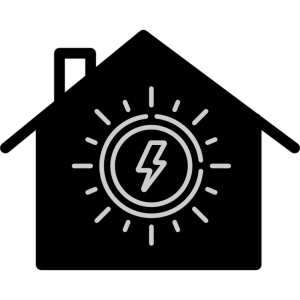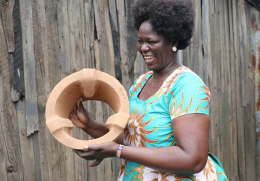Description of the project: From 2019 to 2022, WEEK2 promoted gender equality in Kenya’s energy sector. Kenyan women face barriers in access to energy technology, information and finance, leading to low participation in sustainable energy markets. 84% of rural households rely on wood as their main fuel, leading to GHG emissions and deforestation. Health impacts of indoor smoke and firewood collection fall disproportionately on women and girls. WEEK2 championed the business development of women entrepreneurs in sustainable energy markets in six counties. It influenced national and county policy to support women-led enterprise and promote sustainable energy products. WEEK2 empowered women as energy actors and leaders.
| Climate impact |
 |
Energy entrepreneurs reached 286,766 households and
2,739 institutions with sustainable energy products for cooking, lighting and productive use. |
 |
321,667 improved cookstoves and 700 tonnes of briquettes (made from biomass waste) were sold reducing firewood use. |
 |
88,441 picosolar and solar home systems were sold, reducing households’ reliance on burning kerosene for lighting. |
| Gender impact |
 |
Gender responsive energy national plans generated an
enabling environment and improved participation of women entrepreneurs. |
 |
401 entrepreneurs (360 women) strengthened their
businesses: 70% reported increased sales, 360 jobs created
(218 held by women). |
 |
Reduced indoor air pollution via the uptake of improved
cookstoves and solar lighting have a positive impact
on women’s health. |
| Scalability / replicability |
 |
Cascading national policy to local government, supported
via training of government officials. |
 |
Cultivated diverse networks with representatives from
national and county govt, energy companies, CSOs, women energy entrepreneurs, community leaders. |
 |
Established 52 Village Savings and Loan Associations to
address barriers in access to finance faced by women energy entrepreneurs. |







